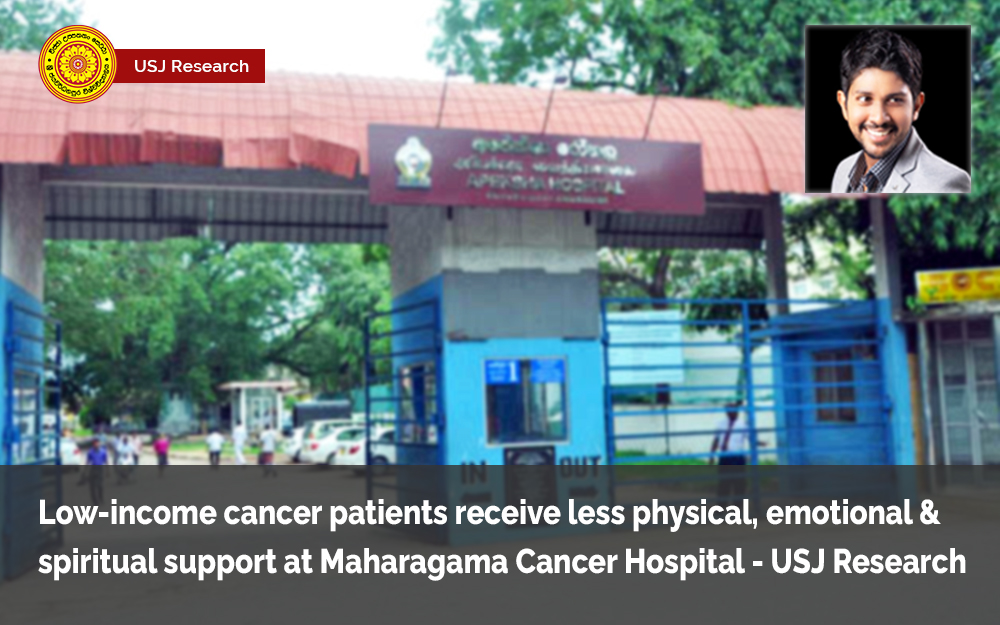End of life and palliative care help improve the quality of life for someone who has a life-limiting illness, by offering services, advice, information, referral and support. End of life and palliative care offers emotional and practical support to families, friends and carers. The Universal Health Coverage goal is to provide access to affordable palliative care to reduce disparities in end-of-life (EOL) outcomes. To assess progress toward this goal in Sri Lanka, a study was carried out by the researchers with the primary aim of systematically assessing differences in patients’ physical, psychological, social and spiritual outcomes and their perceived quality of care by their socioeconomic status (SES). Dr. G. V. M. C. Fernando from the National Centre for Primary Care and Allergy Research, University of Sri Jayewardenepura, Nugegoda, Sri Lanka collaborated with Dr. Thushari Hapuarachchi, Dr. Sujeeva Weerasingha, Dr. Alexina Priyanthi from National Cancer Institute Maharagama, Maharagama, Sri Lanka and doctors from Lien Centre for Palliative Care, Duke-NUS Medical School, Singapore for the study. This was the largest study conducted around the new clinical discipline of Palliative Care in Sri Lanka.
The study results show that there are differences in end-of-life (EOL) outcomes among advanced cancer patients who receive care at one of Sri Lanka’s largest public hospitals by their SES, education, ethnicity, age, gender, and marital status. Notably, low SES patients reported worse physical, emotional, spiritual, and social EOL outcomes compared with those from high SES patients. To reduce inequalities in patient outcomes at EOL within public hospitals in Sri Lanka, there is a need to enable access to appropriate palliative care and EOL care services, and medications to all advanced cancer patients. Future studies should develop interventions supporting vulnerable patient groups to ensure equal access to EOL services. The study was supported by the Lien Centre for Palliative Care.
“Our results showed that patients with more years of education perceived their quality of nursing care to be worse. It is possible that even when the quality of care provided to all patients is the same, those with higher levels of education perceive their quality of care to be worse due to greater expectations regarding care (Johansson et al., Reference Johansson, Oléni and Fridlund 2002). Future research should examine and correct for such systematic variation in reporting behavior in order to get a better estimate of differences in quality of care among patients with different levels of education.” said Dr. G. V. M. C. Fernando.
Read the full article : Disparities in end-of-life outcomes among advanced cancer patients in Sri Lanka: Results from the APPROACH study
Read more Research Articles :
USJ and USDA-ARS collaborative research team discovered new Pathogenic Fungal species
Biofuel from Cyanobacteria and paper waste – The Centre for Water Quality and Algae Research








